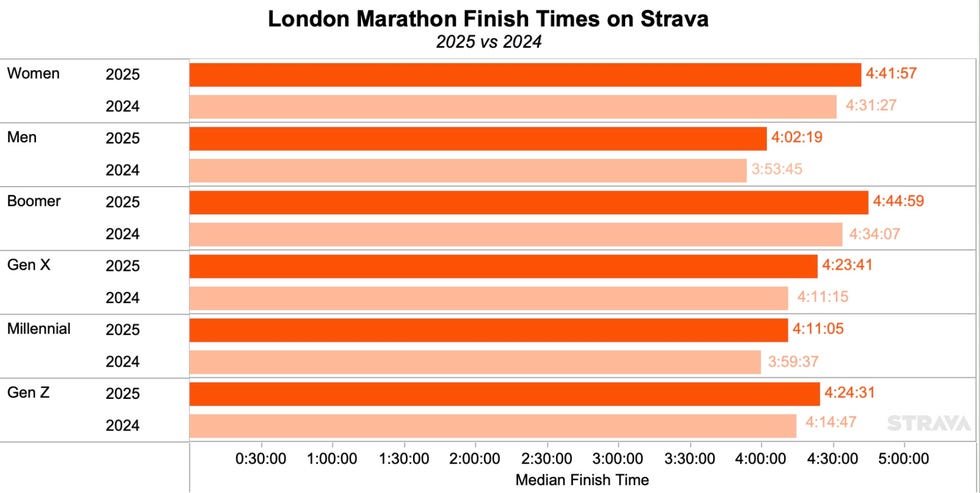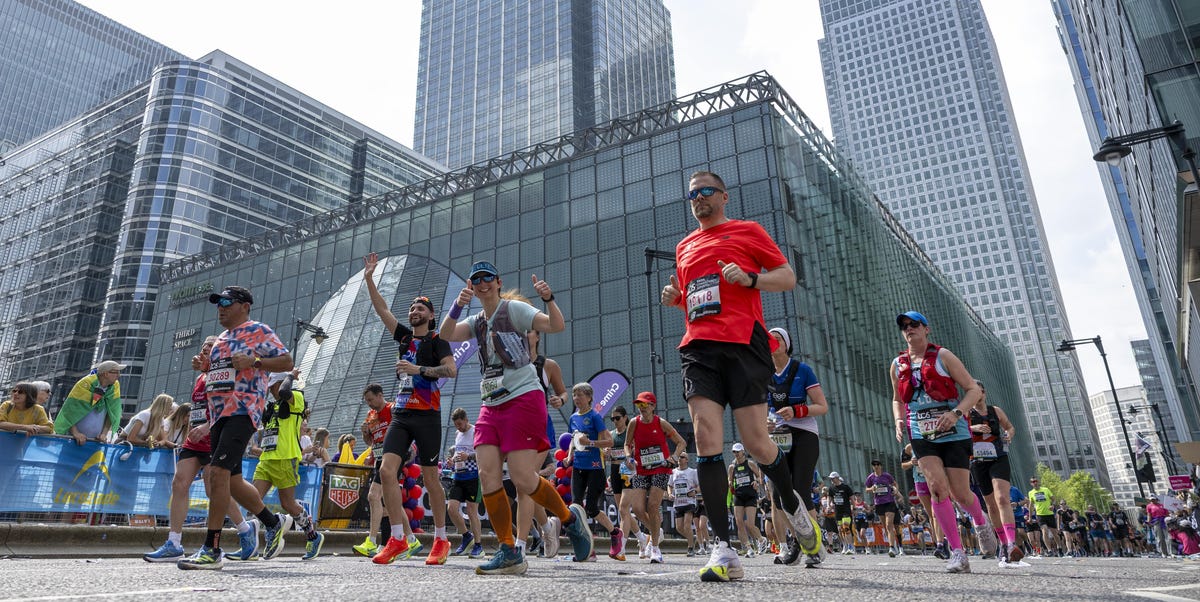The world records keep rolling in for the London Marathon.
On Saturday (3 May), we discovered that an eye-popping 1,133,813 people – comprising 869,803 UK applicants and 264,011 international applicants – entered the ballot for a place in the 2026 London Marathon. This immense figure is a 36% increase on the previous world record total of 840,318 applications, which was set last year for the 2025 London Marathon ballot, and nearly double the total ballot applications for the 2024 London Marathon (578,304). In other words, if you entered the 2026 London Marathon ballot, please don’t bank on your newly decreased chances.
That said, a lot of people still get the opportunity to experience the magic of completing the London Marathon. As in, a lot. Just over a week ago, on Sunday 27 April, the 2025 London Marathon saw a staggering 56,640 people cross its legendary finish line, setting another world record for the most-ever finishers at a single marathon staged anywhere in the world.
But on such a warm day in the English capital, how did the finishers of the 2025 London Marathon fare? Did they go full steam ahead or slow and steady to complete the race? Strava, the sports-oriented app used by more than 15o million active people across the world, has revealed all the answers – and we’re here to share them.
Related StoryWere runners faster at the 2025 London Marathon or the 2024 London Marathon?
Having analysed all the London Marathon activities uploaded to Strava this year and last year, Strava found that women, on average, were more than ten minutes faster at the 2024 London Marathon than they were at the 2025 London Marathon. Men, meanwhile, were more than eight minutes faster in 2024 than they were in 2025.
When splitting London Marathon participants by generation, Strava deduced that Gen Z and Boomers were around 10 minutes slower in 2025 than they were in 2024, while Millennials and Gen X slowed down by about 12 minutes – the most of all generations – from one year to the next.
If you took part in the 2025 London Marathon, you’ll be quick to testify that it was a hot one, with temperatures rising as high as 22°C on the day. Running in the heat is uncomfortable at the best of times – let alone when your run is 26.2 miles long – and research has now shown that running in temperatures of 18°C or above can result in a noticeable drop in pace and performance over the marathon distance. So, it might come as no surprise that runners, on average, were slower at the 2025 London Marathon than they were at the 2024 London Marathon, where temperatures peaked at a more pleasant 13°C.
Related StoryWhat were the fastest and slowest demographics at the 2025 London Marathon?
As the following table demonstrates, men finished fastest at the 2025 London Marathon, clocking a median finish time of 4:02:19 – even though this was still down from 3:53:45 in 2024. The medium finish time for women at this year’s race was 4:41:57.
Generationally, Millennials came out on top with a medium finish time of 3:59:37, just about breaking the four-hour barrier, while Boomers had the slowest median finish time of 4:44:59. The average gap between the fastest generation and the slowest, then, was about 45 minutes.
For context, according to data collated by RunRepeat, the average marathon finish time for men in the UK is 4:23:27, while the average marathon finish time for women in the UK is 5:00:39. By that logic, finishers at the 2025 London Marathon who uploaded their activities to Strava did very well indeed, despite the hot weather.

Strava
What is the fastest part of the London Marathon course?
The ‘don’t go off too fast!’ advice might go a little out the window at the London Marathon, as the first few kilometres are mostly downhill and often powered by adrenaline and fresh legs.
The real descent arrives around the 5K mark, which makes it somewhat unsurprising that Strava has found to fifth kilometre of the London Marathon to be the fastest. In fact, in 2025, runners completed this kilometre at an average pace of 5:20 min/km.
However, move to the business end of the London Marathon – the latter stages, of course – and speed was less prominent. According to Strava, more than 50% of finishers at the 2025 London Marathon ‘bonked’ or ‘hit the wall’, which was shown by a 10% or more decrease in pace in the second half of the race.
Should you be one of the lucky runners who succeeds in securing a place in the 2026 London Marathon, remember to put in the training, fuel well, gear up properly and believe in yourself to have a happy and bonk-free marathon experience.
Related Story
